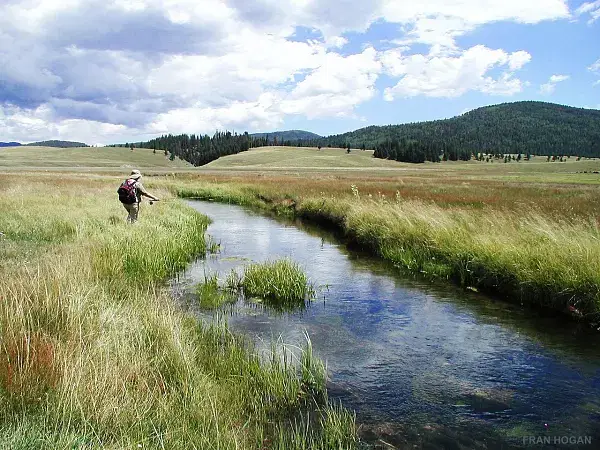
Trout Fishing
Duration
2 to 5 Days
2 to 5 Days
Best time to visit
Apr-Jul
Apr-Jul
Theme
Adventure, Waterfront
Adventure, Waterfront
Trout Fishing Travel Guide
Trout Fishing is a serene and picturesque destination known for its crystal-clear waters and abundant trout population. Situated in the heart of the Rocky Mountains, this destination offers a perfect blend of natural beauty and outdoor adventure. Anglers from around the world flock to Trout Fishing for its world-class fishing opportunities in stunning alpine lakes and rivers.Top Attractions in Trout Fishing
- 1. Fly Fishing in Blue River
- 2. Hiking Trails in Rocky Mountain National Park
- 3. Scenic Drives along Peak to Peak Highway
- 4. Wildlife Viewing at Estes Park
- 5. Camping in Arapaho National Forest
Trout Fishing is Famous for
Trout Fishing is famous for its pristine waters and abundance of trout, making it a paradise for anglers and outdoor enthusiasts alike.Top Attractions in Trout Fishing
- Fly Fishing in Blue River
- Hiking Trails in Rocky Mountain National Park
- Scenic Drives along Peak to Peak Highway
- Wildlife Viewing at Estes Park
- Camping in Arapaho National Forest
What's Great about Travelling to Trout Fishing?
- 1. Breathtaking natural beauty
- 2. Abundance of fishing opportunities
- 3. Peaceful and serene environment
What's Not So Great about Travelling to Trout Fishing?
- 1. Limited dining and shopping options
- 2. Weather can be unpredictable
- 3. High altitude may affect some visitors
Travel Tips for Trout Fishing
- Research fishing regulations before your trip
- Bring layers of clothing for changing weather conditions
- Book accommodations in advance, especially during peak season
Important Trout Fishing trip information
- Ideal Duration: A week for a comprehensive experience
- Best Time to Visit: Summer months for ideal fishing conditions
- Nearby Airports and Railway Stations: Denver International Airport and Union Station
FAQ's on Trout Fishing
Q1: What is the best time to visit Trout Fishing?
The best time to visit Trout Fishing is during the spring and fall seasons when the weather is mild, and the trout are most active. Avoid the peak summer months when temperatures can soar, leading to slower fishing conditions. Additionally, consider visiting during trout fishing tournaments or festivals for a unique experience.
Q2: Do I need a visa to travel to Trout Fishing?
Tourists visiting Trout Fishing typically do not need a visa for short stays. However, it's essential to check the specific visa requirements based on your nationality before traveling. Some countries may have visa exemptions or visa-on-arrival options for tourists visiting Trout Fishing.
Q3: What are the must-visit attractions in Trout Fishing?
In Trout Fishing, don't miss the scenic trout streams and rivers that offer excellent fishing opportunities. Other must-visit attractions include Trout Fishing National Park, where you can enjoy hiking and wildlife spotting, and Trout Fishing Museum to learn about the history of trout fishing in the region.
Q4: Is Trout Fishing a safe place to travel?
Trout Fishing is generally a safe destination for travelers. However, it's essential to be cautious in remote areas and follow basic safety precautions. Avoid fishing alone in unfamiliar areas, be aware of your surroundings, and follow any local guidelines regarding wildlife encounters.
Q5: What is the local currency in Trout Fishing and can I use credit cards?
The local currency in Trout Fishing is the Trout Dollar (TD). While some establishments may accept credit cards, it's advisable to carry cash, especially in rural areas or for fishing permits. ATMs are available in major towns for convenient access to local currency.
Q6: What is the local cuisine like in Trout Fishing?
Trout Fishing offers a delicious array of local cuisine, with trout being a prominent feature in many dishes. Try the famous Trout Fishing Trout Bake, a traditional dish cooked over an open fire. Other popular foods include freshwater fish, locally grown vegetables, and homemade pies.
Q7: What transportation options are available in Trout Fishing?
Transportation options in Trout Fishing include rental cars, public buses, and taxis. For anglers looking to explore remote fishing spots, renting a car is recommended. Public buses are also available for travel between towns, while taxis provide convenient transportation within urban areas.
Q8: Are there any cultural norms or etiquette I should be aware of when visiting Trout Fishing?
When visiting Trout Fishing, it's essential to respect local fishing regulations and practices. Avoid trespassing on private property for fishing and always obtain the necessary permits. Additionally, greet locals with a friendly "tight lines" and be mindful of preserving the natural environment by practicing catch-and-release fishing where possible.
Q9: I am a travel agent. How can I buy travel leads of Trout Fishing?
Register yourself as a travel agent at agents.tripclap.com and then you can buy travel leads to Trout Fishing once your account is approved. For more details contact our support team at +91-8069186564 or support@tripclap.com
